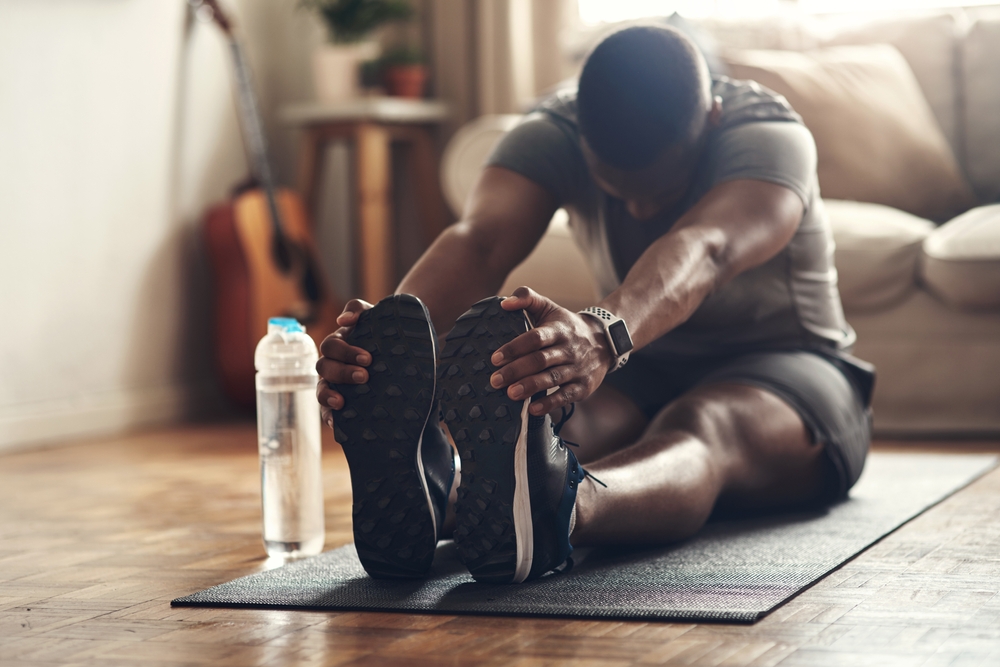For Black Americans, developing an effective exercise routine goes beyond general fitness goals. It represents a crucial strategy for addressing historical health disparities and reducing the risk of chronic diseases that disproportionately affect the community. This comprehensive guide explores evidence-based approaches to exercise that can lead to improved health outcomes.
The foundation of fitness success
Before diving into any exercise program, establishing proper fundamentals proves essential. A well-structured warm-up routine, including dynamic stretching and light cardiovascular activity, prepares the body for more intense exercise while reducing injury risk. This foundation becomes particularly important given the higher rates of certain joint and muscular conditions within the Black community.
Strength training fundamentals
Incorporating resistance training plays a vital role in overall health improvement. Compound exercises like squats and deadlifts efficiently build muscle mass, increase bone density, and improve metabolic health. These benefits become especially significant given the higher rates of osteoporosis and metabolic disorders among Black Americans.
High-intensity interval training benefits
HIIT offers particular advantages for those with limited time for exercise. This efficient training method maximizes caloric burn while improving cardiovascular health. Studies show that HIIT can be especially effective in reducing the risk of heart disease, which affects Black Americans at disproportionately high rates.
Outdoor activities and community engagement
Participating in outdoor activities provides both physical and mental health benefits. Activities like basketball, running, or cycling not only improve fitness but also offer opportunities for community connection and stress reduction. These social aspects of exercise can help combat the mental health challenges often faced by Black Americans.
Mind-body connection through yoga
Including yoga in exercise routines offers multiple benefits beyond flexibility. Regular practice can reduce stress, improve sleep quality, and enhance overall mental well-being. Given the unique stressors faced by Black Americans, these mental health benefits become particularly valuable.
Core strength and stability
Developing core strength through exercises like planks and targeted abdominal work supports overall physical health. A strong core improves posture, reduces back pain, and enhances performance in other physical activities. This foundation of strength becomes crucial for long-term health maintenance.
Low-impact cardiovascular options
Incorporating low-impact activities provides cardiovascular benefits while minimizing joint stress. Options like swimming, dancing, or brisk walking offer excellent exercise alternatives, particularly important for those managing joint conditions or beginning their fitness journey.
Structured gym environments
Joining a gym provides access to diverse equipment and professional guidance. Many facilities now offer culturally competent training programs specifically designed for Black Americans’ health needs. These specialized programs can provide both physical benefits and supportive community connections.
Recovery and rest importance
Proper rest between workouts plays a crucial role in fitness success. Adequate recovery helps prevent overtraining, reduces injury risk, and allows for optimal adaptation to exercise. Understanding this balance becomes especially important given the often-busy schedules many maintain.
Nutrition and exercise synergy
While exercise provides numerous benefits, optimal results require proper nutrition support. Focus on whole foods rich in nutrients, particularly those addressing common deficiencies in the Black community. This nutritional foundation enhances exercise benefits while supporting overall health.
Addressing health disparities
Regular exercise can help reduce the impact of health disparities affecting Black Americans. Physical activity helps manage conditions like hypertension, diabetes, and obesity, which occur at higher rates within the community. Understanding these connections motivates consistent exercise habits.
Mental health benefits
Exercise provides significant mental health advantages beyond physical improvements. Regular activity can reduce stress, anxiety, and depression symptoms, particularly important given the unique psychological stressors many Black Americans face. The mental clarity and emotional balance from exercise support overall well-being.
Creating sustainable habits
Developing long-term exercise habits requires understanding personal motivations and barriers. Consider factors like schedule constraints, access to facilities, and social support when designing your routine. Success comes from creating sustainable practices that fit your lifestyle.
Community support and motivation
Engaging with exercise partners or groups can enhance motivation and consistency. Consider joining Black-led fitness communities or working with culturally competent trainers who understand specific health concerns and goals. This support system helps maintain long-term commitment to health improvement.
Future health implications
Consistent exercise habits create lasting health benefits that extend beyond immediate fitness improvements. Regular physical activity helps reduce future disease risk while enhancing quality of life. These long-term benefits make exercise investment particularly valuable for Black Americans’ health outcomes.

















